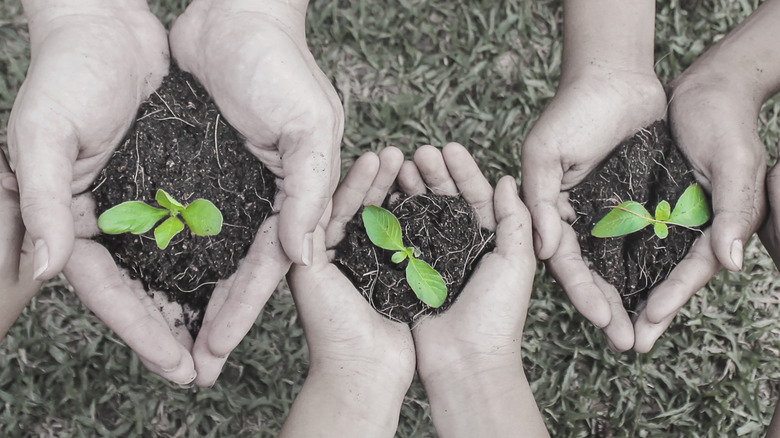New Study Examines Which Foods Damage Our Environment The Most
A new study has taken on the daunting task of analyzing the carbon footprint of 99% of all food produced and reported to the United Nations, per Food Business News. This study was conducted by the University of California Santa Barbara's National Center for Ecological Analysis and Synthesis (NCEAS) and led by its executive director Ben Halpern.
"I became a pescatarian years ago because of wanting to reduce the environmental footprint of what I eat, but then I thought, I'm a scientist, I should really use science to inform my decisions about what I eat. That's actually why I started this research project," said Halpern.
Halpern told Food Business News that the results of the study will guide his own diet going forward. This means that fish may be off the menu for him. One of the key takeaways of the study was that aquatic farming operations account for nearly 10% of food production's total environmental impact while only contributing 2% of the food. Wild-caught fish like cod and haddock aren't much better due to the use of ocean-floor trawling methods. These gigantic nets are accountable for destroying significant fish habitats on the ocean floor and impacting the ocean's health. Other species of fish were found to have a far smaller impact.
The study also produced several other key takeaways showing the complexity of modern food systems
Study gives new perspective on eco-friendly foods
The food industry's impact on the climate has been known for some time. According to the United Nations, agriculture and other forms of food production account for an average of one-third of humanity's greenhouse gas emissions. Michelin has started issuing "green stars" for sustainable practices at restaurants, and some consumers have become regenivores to help mitigate negative effects on the climate. Researchers at NCEAS say that creating an impact scale for food products is an important step in guiding healthy consumer practices.
One of the more interesting reveals of the study is that the production of the same food can have different impacts depending on the country responsible. While the U.S. may produce 10% more beef than Brazil, it actually has a far smaller impact because of that industry's effects on the rainforest which acts as a carbon sink, per The Washington Post.
Another enlightening point of the study was that pork may have a greater impact than previously believed. Researchers found it actually consumes more water than beef production and produces a sizable volume of greenhouse gasses. Crops like rice and wheat were also found to have a greater impact due to their water consumption as well.
Hopefully, this new study can help industries and consumers make positive changes for the climate.

